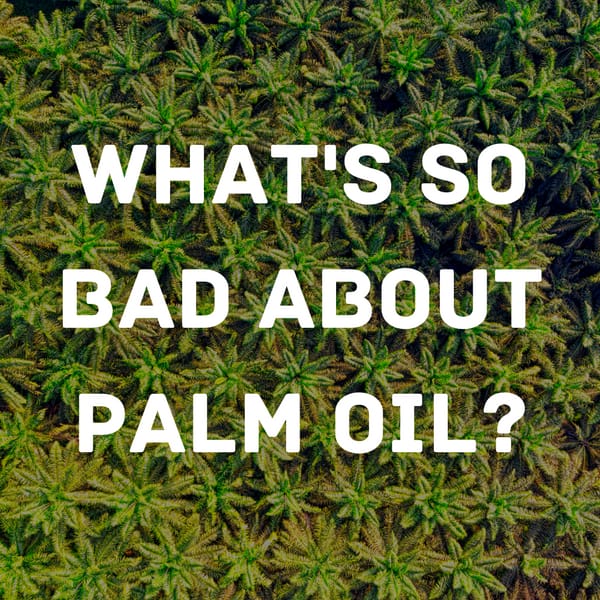
Palm oil is a vegetable oil made from the fruit of African oil palms. African oil palms naturally grow in tropical rainforests but are also farmed specifically for their oil. Dr Emma Keller from wildlife charity WWF states that "Palm oil is in close to half of the products we buy in the supermarkets - in everything from shampoos and soaps, to pizzas and biscuits. It's everywhere."
So why is it so bad?
There is nothing inherently bad about African oil palms or the production of palm oil, the issue lies in the mass production of it which feeds deforestation, intensive farming and mono-cultures. 8% of deforestation between 1990 and 2008 was as a result of palm oil production. This is because large areas of rainforest are burned down in order to clear the space for African oil palm plantations – much of this takes place illegally but that doesn’t stop it ending up in your food and household products!
Burning forests in this way destroys habitats for wildlife, reduces biodiversity, releases harmful greenhouse gases into the atmosphere thus contributing to climate change, and also pushes wild animals into human inhabited spaces, increasing the likelihood of new diseases entering the human population just like Covid-19! For more information about deforestation, check out our blog for International Day of Forests.
Not only are there environmental concerns about the mass production of palm oil, but Amnesty International also reported in 2016 that many palm oil plantations in Indonesia use child labour, with the palm oil then bought by companies such as Colgate, Kellogg’s, Nestlé and many more.
See this video made by Amnesty International about the human rights exploitation in Wilmar's Indonesian palm oil plantations…
What is the solution?
It can feel like you're fighting a losing battle when it comes to palm oil, as even RSPO approved palm oil may not be without human exploitation.
But boycotting palm oil is not the answer either, as it is much more efficient to produce compared to many other vegetable oils.
The answer is simply to put pressure on big corporations to use sustainably sourced palm oil, which has been checked and verified. This can be by signing petitions, writing letters, spreading the word on social media or among your friends and family. We can sometimes feels powerless when faced with massive, wealthy companies, but just remember that we do have power as consumers!
Use your voice and speak out about palm oil production.
